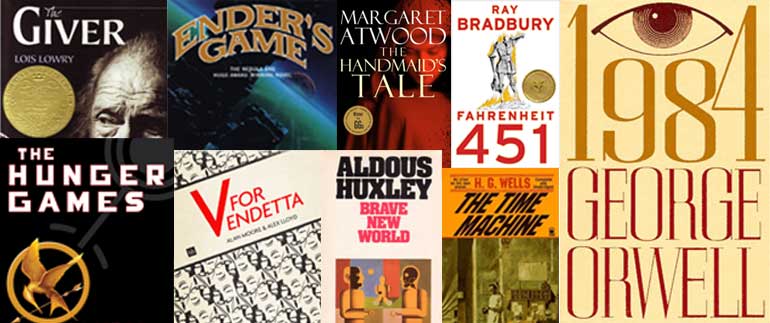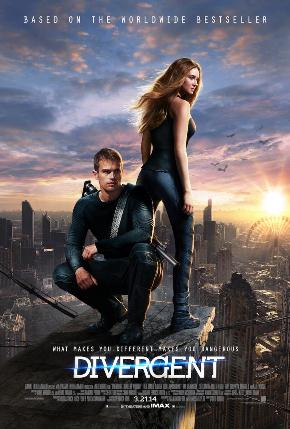Gendler, A. How to recognize a dystopia. “TedEd."
https://www.youtube.com/watch?v=6a6kbU88wu0&t=34s
 |
| Dystopia vs Utopia https://i.pinimg.com/originals/ee/3b/62/ee3b62875b93f4fbdd91d9f0f7baad1b.jpg |
Dystopian literature is increasingly finding its way to popular culture and proving itself to be worthy of academic study. Since dystopian societies are the opposite of utopian ones, dystopias are far more harrowing because they reflect certain aspects of modern society that are undesirable, disliked, or unrealized, and further these aspects by developing a horrifying environment in which no one wants to live. Since dystopian societies typically take place in the future, there are science fiction elements inevitably involved in the story, such as natural disasters/degradation or unique technology, and oftentimes the futuristic society takes place after an apocalyptic event.
In recent years, there has been a significant increase in the amount of dystopian novels published, including young adult fiction novels such as the Divergent trilogy by Veronica Anne Roth. This book series is undeniably dystopian because it follows the character Tris who must learn how to navigate and survive in a post-apocalyptic Chicago among the created factions. This series reflects certain aspects of our modern world and delves further into the implications of separation of people based on differences and uniqueness. Divergent challenges the notion that people should be divided into neat organizational groups and blindly follow leadership by utilizing futuristic technology such as the fear landscape and testing serums. This series provides young adults with a means to not only examine the world that we live in today but also to reflect on the implications of certain aspects of society and how those aspects lend themselves to the creation of such a dystopian society.
 |
| Examples of Dystopian Literature. http://media1.shmoop.com/shmooc/dystopian-lit/dystopian-lit-main.jpg |
Dystopian literature appears to be increasing in popularity for numerous reasons. In the world of young adult literature, these novels are providing a platform through which teenagers and young adults can pause, reflect, and think critically about their own life and the unfavorable aspects reflected in the book. The Artifice provides an excellent piece on the popularity of dystopian literature, specifically young adult literature that is extremely insightful.
According to Ames, the amount of dystopian literature increased immediately after 9/11, thus furthering the relationship that dystopian fiction forged with current societal events (Ames, 2013). After 9/11, the overall atmosphere was generally fear-charged, and as a result, events like 9/11 contribute to the popularity of dystopian literature because the books “present fictional fear-based scenarios that align with contemporary cultural concerns” (Ames, 2013). In addition, dystopian literature provides a jumping-off point to discuss sensitive issues that are prevalent in society, such as climate change, political tensions, and/or the increase in unnerving technological advancements (Ames, 2013). Essentially, dystopian books are a source of critical thinking and reflection in a world that is grappling with the consequences of things that are abundant in science fiction and dystopias, including unique technology and natural disasters.
 |
| Divergent Movie Poster. https://the-artifice.com/wp-content/uploads/2015/04/Divergent.jpg |
In some ways, dystopian literature reflects both dominant and counter cultural ways of thinking. For example, novels like The Road by Cormac McCarthy provide insight into the dominant culture that love, especially between a parent and child, is an entity that is necessary in order to survive in any world,
while also examining aspects of counter culture by challenging the notions of the impacts that climate change has upon the world and the negative environments and consequences that could result in such a post-apocalyptic world.
 |
| Father and Son in The Road. https://mefinx.files.wordpress.com/2011/09/road.jpg |
Dystopian literature has been increasing significant within the past couple of decades, and as a result, dystopian societies are often part of everyday conversation (think The Hunger Games, Divergent, Handmaid's Tale). Through this explosion onto the popular culture scene, dystopian literature provides its readers with the unique opportunity to examine disturbances on the norms of societies and the consequences of society.